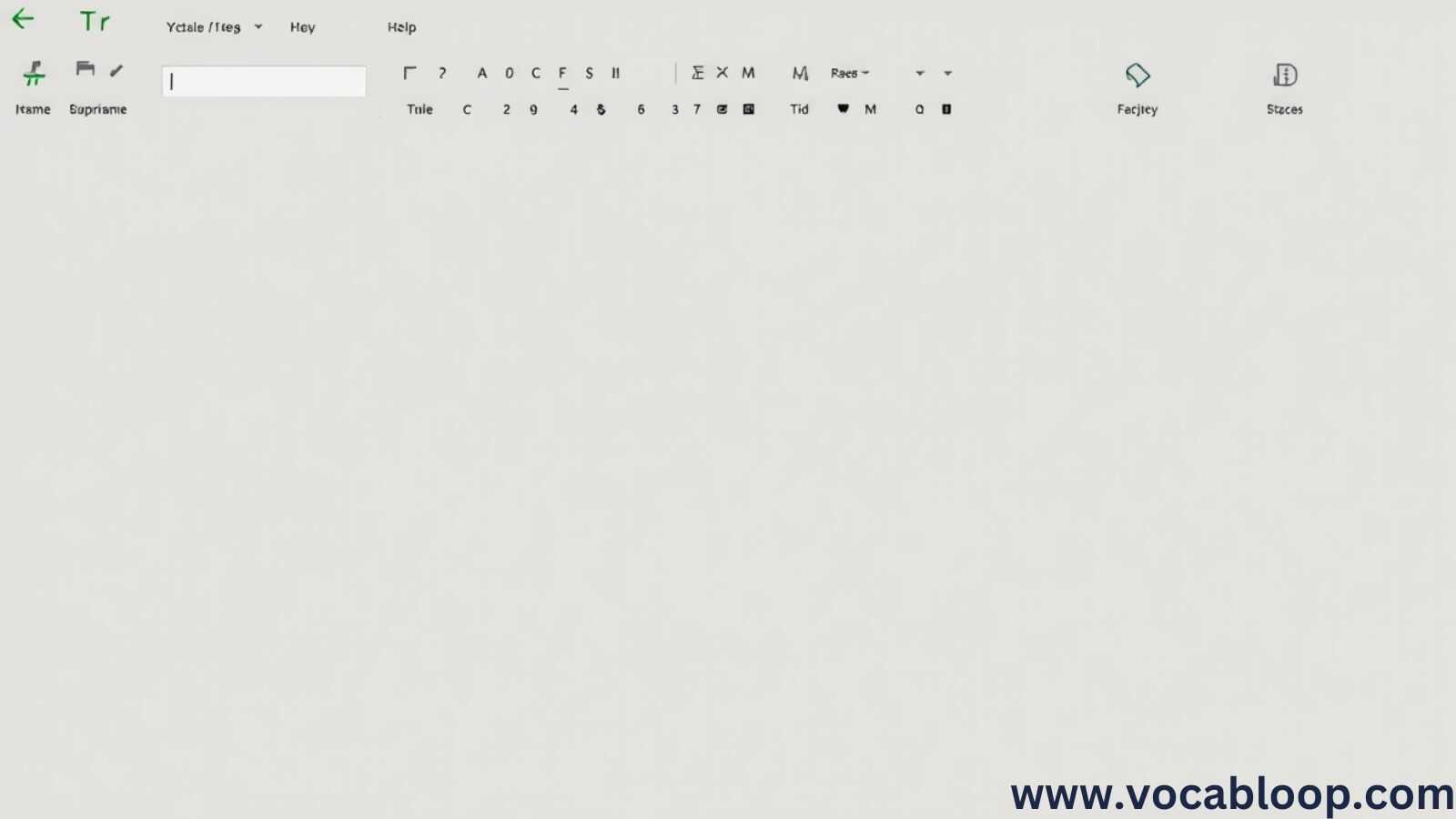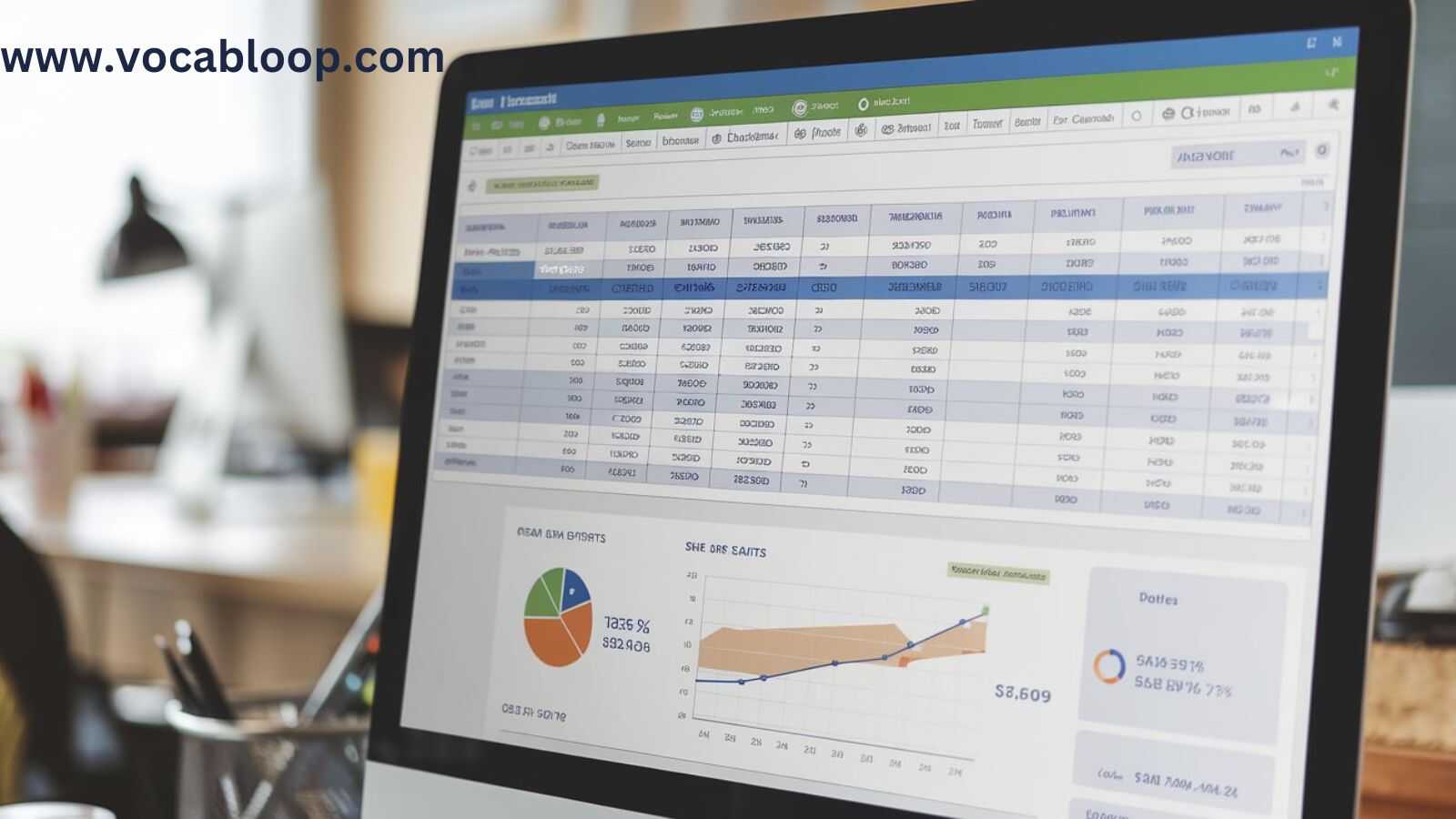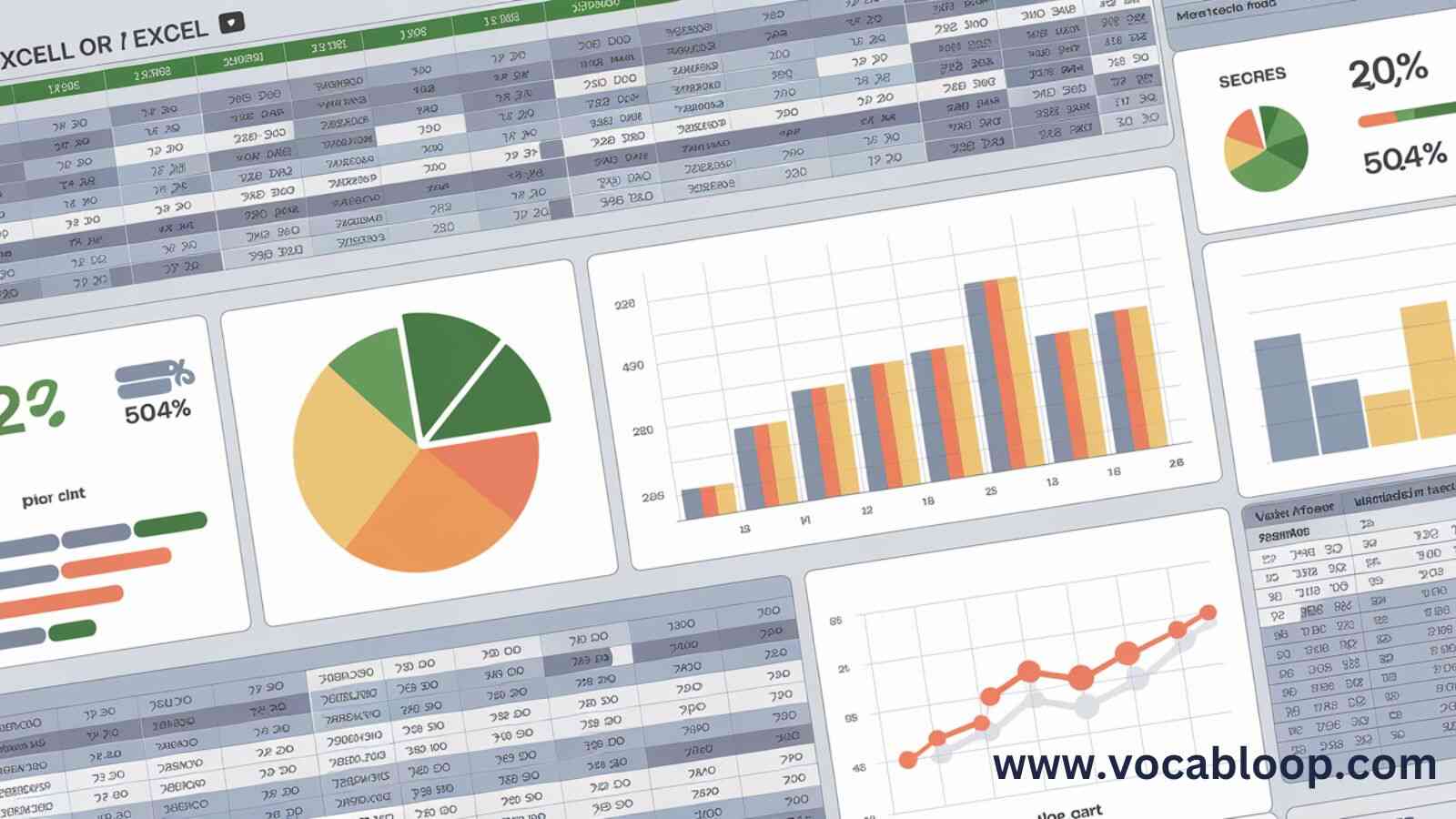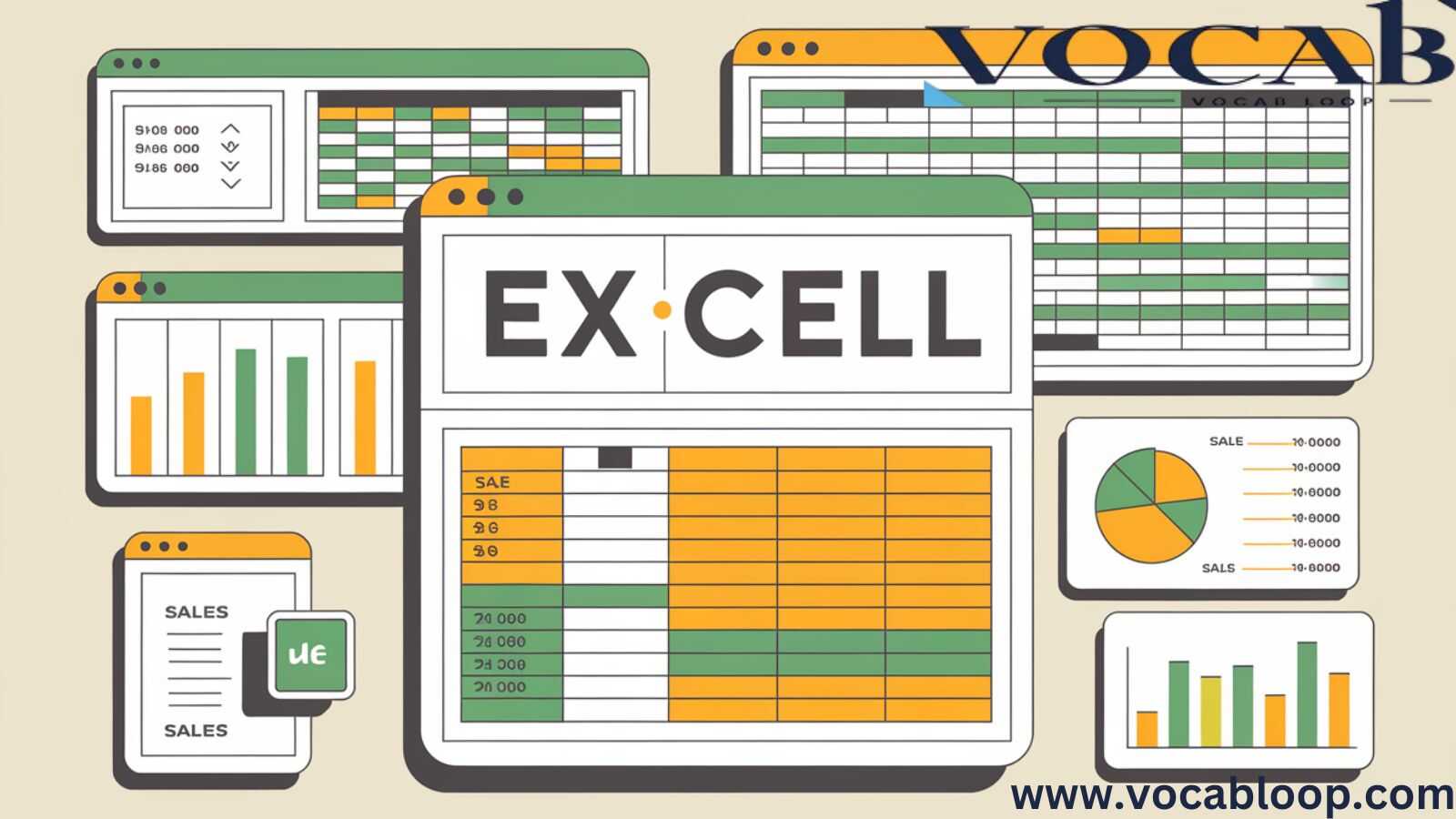In today’s fast-paced digital world, correct spelling is more crucial than ever. Whether you’re crafting an important email or analyzing data in a widely-used spreadsheet, the difference between “Excell” vs “Excel” can make or break your professional image.
This comprehensive guide will unravel the mystery behind these similar-looking words, exploring their meanings, usage, and impact on effective communication.
The Great Spelling Debate
Have you ever found yourself hesitating before typing “excel” or “excell“? You’re not alone. This common conundrum has tripped up many, from students to seasoned professionals. But why does it matter so much?
In professional settings, precision is key. A simple spelling error can:
- Undermine your credibility
- Distract from your message
- Potentially lead to misunderstandings
As we delve deeper into the world of “excel,” we’ll equip you with the knowledge to use this word with confidence, whether you’re discussing exceptional performance or referencing a widely-used software.
Unraveling the Mystery: Excel Defined

Definitions
Excel
- To surpass others or be exceptionally good at something.
- Often used to describe outstanding performance or skill in a specific area.
Excell
- A common misspelling of “excel” that occasionally appears in informal contexts.
- Rarely used in standard English, though it may appear in brand names or personal preferences.
Etymology and Origins
The word “excel” has its roots in Latin, derived from “excellere,” which means “to raise, elevate, or surpass.” This origin hints at the word’s positive connotations of superiority and achievement.
Fun Fact: The Latin prefix “ex-” means “out of” or “beyond,” while “-cellere” is related to “celsus,” meaning “lofty” or “high.”
Evolution of Usage
Over time, “excel” has evolved to encompass various meanings:
- Being really good at something
- Surpassing others in performance or quality
- The name of a popular computer program
This versatility has cemented “excel” as a powerful word in both everyday language and the tech world.
Excel: More Than Just a Verb

Transitive vs. Intransitive Usage
“Excel” can be used both transitively and intransitively, adding to its flexibility:
- Intransitive: She excels in mathematics.
- Transitive: His performance excelled all expectations.
Conjugation Quirks: Why ‘excelled’ and ‘excelling’ double the ‘l’
One of the trickier aspects of “excel” is its conjugation. When adding “-ed” or “-ing,” we double the ‘l’:
- Present: excel
- Past: excelled
- Present participle: excelling
This follows the spelling rules for words ending in an unstressed vowel + consonant. Doubling the final consonant preserves the short vowel sound.
Excel in Action: A Verb’s Journey
| Tense | Example |
| Present | I excel at problem-solving. |
| Past | She excelled in her role as team leader. |
| Present Perfect | They have excelled throughout their careers. |
| Future | We will excel in this new project. |
The Software Giant: Microsoft Excel

No discussion of “excel” would be complete without mentioning Microsoft Excel, the widely-used spreadsheet application that has revolutionized data analysis and management.
Brief History of the Spreadsheet Revolution
- 1979: VisiCalc, the first electronic spreadsheet, is released
- 1982: Lotus 1-2-3 becomes the dominant spreadsheet program
- 1985: Microsoft introduces Excel for Macintosh
- 1987: Excel for Windows is released, starting its journey to market dominance
How the Program Got Its Name
Microsoft chose the name “Excel” to convey the idea of exceptional performance and superiority. This clever branding aligned the software with the verb’s meaning, suggesting that users could excel in their work by using the program.
Excell: The Uncommon Doppelganger
While “excel” with one ‘l’ is the correct spelling, “excell” does occasionally appear. But is it a valid variant or simply a common misspelling?
Rare Usage and Potential Origins
“Excell” is not recognized as a standard spelling in major English dictionaries. Its appearance is likely due to:
- Confusion with words like “cell” or “sell“
- Overcompensation in spelling (thinking one ‘l’ looks wrong)
- Regional variations or personal preferences
Common Misspelling or Regional Variant?
While some may argue that “excell” could be a regional spelling, there’s no substantial evidence to support this claim. It’s best to treat “excell” as a misspelling and stick with the standard “excel” for clarity and correctness.
Side-by-Side Showdown: Excel vs. Excell
Let’s break down the key differences:
| Aspect | Excel | Excell |
| Correct Spelling | ✓ | ✗ |
| Recognized in Dictionaries | ✓ | ✗ |
| Used as a Verb | ✓ | ✗ (mistakenly) |
| Name of Microsoft’s Spreadsheet Program | ✓ | ✗ |
| Commonly Used in Professional Writing | ✓ | ✗ |
Beyond Words: Excel’s Impact on Language
The prominence of “excel” has influenced language in various ways:
Idioms and Phrases Born from Excellence
- “Excel oneself”: To perform exceptionally well
- “Excel beyond expectations”: To surpass anticipated results
- “Excel with flying colors”: To succeed brilliantly
Tech Terminology Influence
The popularity of Microsoft Excel has led to new terms:
- “Excelling”: Informally used to describe working with Excel spreadsheets
- “Excel ninja”: A person highly skilled in using the software
- “Excel-lent”: A playful combination of “excellent” and “Excel”
Mastering Excel(l): Tips for Flawless Usage

To ensure you always use “excel” correctly:
- Mnemonic Device: Remember “Excel with one ‘L’ is excellent!”
- Context Clues: If referring to the software, it’s always “Excel”
- Practice: Use the word in various sentences to reinforce correct spelling
The Excellence of Synonyms
When you want to vary your language, consider these alternatives:
For being really good:
- Surpass
- Outperform
- Outshine
- Distinguish oneself
For Microsoft Excel:
- Spreadsheet software
- Data analysis tool
- Calculation program
Each synonym carries slightly different connotations, allowing for more precise and varied communication.
When Spell-Check Fails: Real-world Consequences

Case Study: The $500 Million Resume Blunder
In 2014, a job applicant claimed to have “excelled” in their previous role but mistakenly wrote “excelled.” This minor error cost them a high-level position at a Fortune 500 company, demonstrating how crucial accurate spelling can be in professional contexts.
Business Communication Mishaps
A small tech startup once sent out a press release announcing their new “Excell-ent Data Solutions.” The misspelling went viral, overshadowing their product launch and damaging their credibility in the tech industry.
Excel(l)ing in the Digital Age
Social Media and the Spread of Misspellings
The rapid-fire nature of social media can exacerbate spelling errors:
- Autocorrect may not catch “excell” as an error
- Viral posts can spread misspellings quickly
- Character limits may tempt users to abbreviate incorrectly
Tools for Maintaining Spelling Accuracy
To safeguard against spelling errors:
- Use advanced grammar checking tools like Grammarly or ProWritingAid
- Enable custom dictionaries in word processors to flag uncommon spellings
- Practice mindful proofreading, especially for crucial documents
The Future of Excel(l)
Linguistic Evolution and Accepted Variants
Language is ever-evolving. While “excell” is currently considered incorrect, it’s possible that:
- Increased usage could lead to acceptance as a variant spelling
- The influence of text messaging and social media might impact spelling norms
Predicting Changes in Usage and Spelling
As digital communication continues to shape language:
- Abbreviations like “XL” for Excel may become more common
- New compound words (e.g., “Excel–ify“) might emerge in tech jargon
Usage in Sentences
Excel:
- She always excels in mathematics and science competitions.
- Our team strives to excel in customer service every day.
- He excelled in his role as a project manager, exceeding all expectations.
- With hard work and determination, you can excel in any career you choose.
- The new software is designed to help businesses excel in their operations.
- Athletes who excel in their sports often inspire millions worldwide.
- They have consistently excelled in producing high-quality, eco-friendly products.
- In college, she excelled in both academics and extracurricular activities.
- His ability to excel under pressure makes him a valuable asset to the team.
- The students excelled in their final exams, showcasing remarkable improvement.
Excell:
- The company, Excell Technologies, specializes in renewable energy solutions.
- Excell Logistics is a leading firm in the transportation industry.
- A friend mistakenly wrote “Excell” instead of “Excel” in her email.
- The branding of “Excell” on the product packaging confused a few customers.
- I noticed the word “Excell” engraved on the trophy; it was likely a printing error.
- Excell Industries announced a new range of eco-friendly packaging materials.
- He kept saying “Excell” instead of “Excel” while referring to the spreadsheet software.
- The new startup, Excell Solutions, focuses on affordable IT services.
- A quick glance at the name “Excell Products” made me think it was a typo for “Excel.”
- She jokingly called herself an “Excell-ent typist” after a humorous spelling mistake
FAQs
Is “Excell” ever used in branding or company names?
Yes, “Excell” is occasionally used in brand names or company names. While it’s not standard spelling, some businesses adopt it intentionally for unique branding purposes.
How can autocorrect tools confuse “Excel” and “Excell”?
Autocorrect may not flag “Excell” as an error if the word is present in custom dictionaries or used frequently in saved contexts, leading to unnoticed misspellings in professional writing.
Are there cultural or regional differences in the acceptance of “Excell”?
While “Excell” is not recognized as correct spelling in standard English, some regions may informally accept or use it more frequently, though it’s not officially endorsed.
Why is doubling the ‘l’ in “excelled” and “excelling” correct but not in “excel”?
The doubling of ‘l’ in “excelled” and “excelling” follows English spelling rules that apply to verbs ending in a vowel + consonant. However, in its base form, “excel” retains a single ‘l.’
Can using “Excell” impact search engine optimization (SEO)?
Yes, using “Excell” instead of “Excel” can hurt SEO rankings, especially if your content is targeting keywords related to Microsoft Excel. Misspellings may reduce content visibility in searches.
conclusion
Mastering the correct use of “excel” is more than just a matter of spelling—it’s about precision in communication and showcasing attention to detail. Whether you’re discussing personal achievements or navigating the world of spreadsheets, understanding the nuances of this powerful word will help you excel in your professional and personal endeavors.
Remember:
- “Excel” with one ‘l’ is the correct spelling for both the verb and the software
- Use “excel” to describe outstanding performance or abilities
- Microsoft Excel remains a widely-used software for data analysis and management
By embracing linguistic curiosity and committing to accuracy, you’ll not only avoid common pitfalls but also enhance your ability to communicate effectively in our increasingly text-driven world. So go forth and excel—in your spelling, your work, and your pursuit of knowledge!

Alex Hormozi is a seasoned blogger at Vocab Loop, known for his deep insights into language, vocabulary, and grammar. With years of experience in writing, Alex shares practical tips and effective strategies to help readers improve their linguistic skills and enhance their writing abilities.

